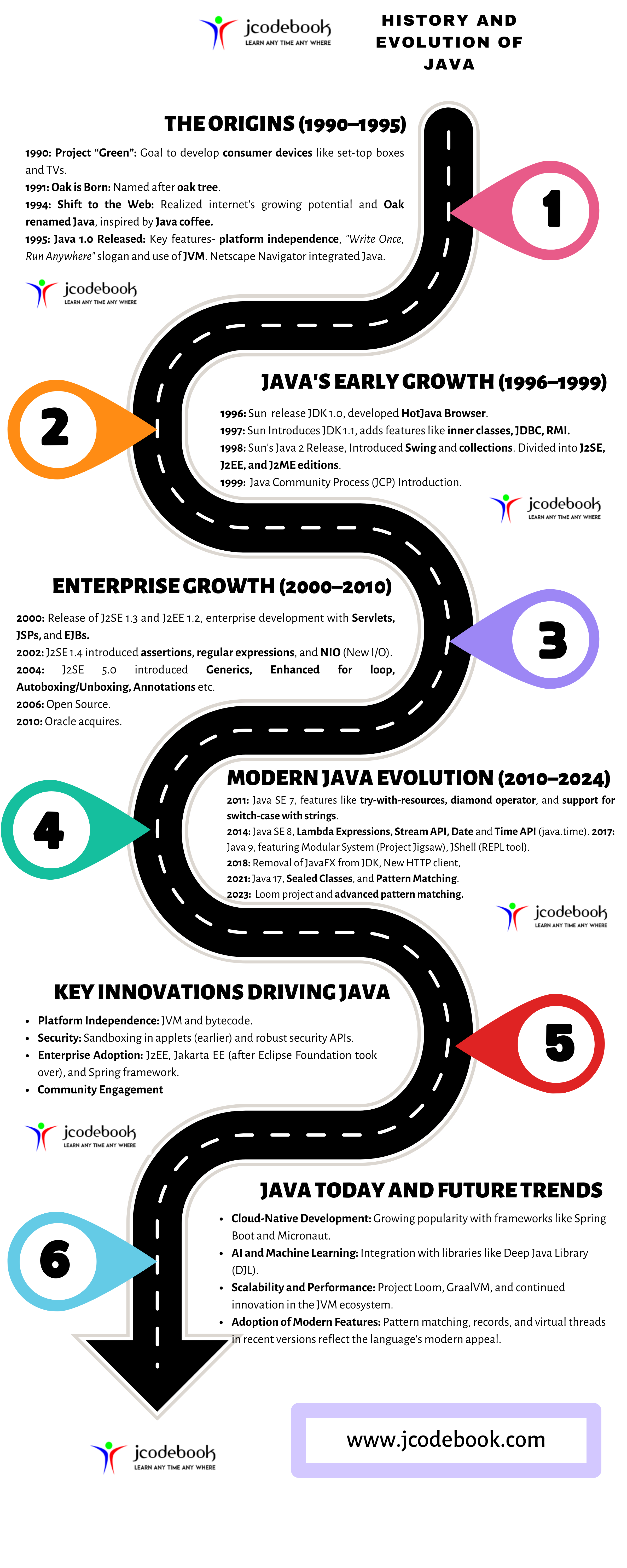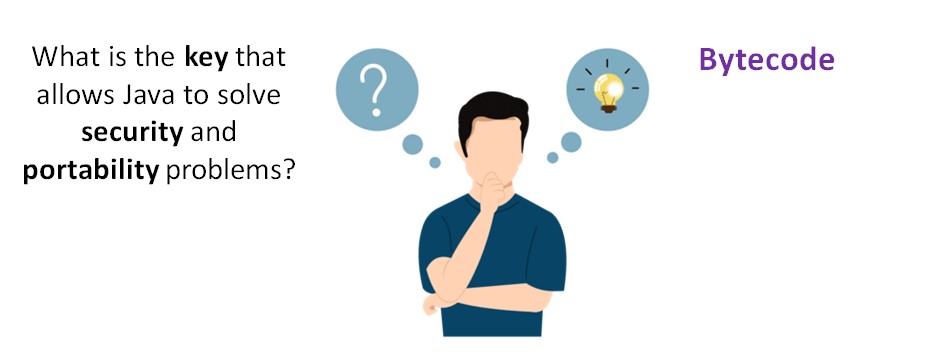In this lesson, you will learn.
Java is a high-level, class-based, object-oriented programming language and the platform developed by James Gosling and his team at Sun Microsystem in 1991 and later (Jan 27, 2010) acquired by the Oracle.

Here’s a brief overview of the evolution and history of Java.

Java is related to C++, which is a direct descendant of C. Much of the character of Java is inherited from these two languages i.e. C and C++.
From C, Java derives its syntax. Many of Java’s object-oriented features were influenced by C++.
Due to similarities between Java and C++, it was mostly considered the internet version of C++. C++ indeed influenced Java, but not an enhanced version of C++.
Java has significant practical and philosophical differences. In the upcomming lesson, you will learn difference between Java and C++.
The original impetus for Java was not the Internet. Instead, the First and primary motivation was the need for a platform-independent (that is, architecture-neutral).
The trouble with C and C++ (and most other languages) is that they are designed to be compiled for a specific target, which means platform-dependent.
In an attempt to find such a solution, Gosling and others began work on a portable, platform-independent language that could be used to produce code that would run on a variety of CPUs under differing environments.
This effort ultimately led to the creation of Java.
This second force was, of course, the World Wide Web(WWW) i.e. the Internet. However, with the emergence of the WWW, Java was propelled to the forefront of computer language design, because the Web, too, demanded portable programs.
So, let us learn the role of Java on the Internet.
Java innovated a networked program called the Applet that changed the way the online world thought about content.
Java also addressed some of the complex issues associated with the Internet i.e. portability and security.
An Applet is a special Java program designed to be transmitted over the Internet and automatically executed by a Java-compatible web browser.
Applets are small programs and are typically used to display data provided by the server, handle user input, or provide simple functions, such as a loan calculator, that execute locally, rather than on the server.
Note: Applet support is being removed by JDK 11.
Networked programs like Applet also present serious problems in the area of security and portability.
Let’s take a close look at both issues.
You are at risk while downloading programs online because the downloaded code may contain viruses.
The malicious code may harm your computer and access unauthorized resources from your machine.
For example, malicious code can steal some private information such as your bank account number, credit, and debit card number, passwords, and account balances by reading files from your computer disk.
Java is enabled to download and execute applet code safely on your computer and prevent such types of attacks. The Java Runtime Environment(JRE) provides this security protection that does not allow to access other parts of the computer.
Portability is a major aspect of the Internet because many different types of computers and operating systems are connected to it in distributed environments. Java programs run on any computer and platform connected to the Internet.
For example, the same applet code must work on all computers irrespective of the diverse platforms. Practically, it is not to have different versions of the applet for different computers. The same code must work on all computers.

In the next lesson, you will learn more about the features of Java.
Well Explained!!
Helpful
nice explanation
Very Good
You must be logged in to submit a review.